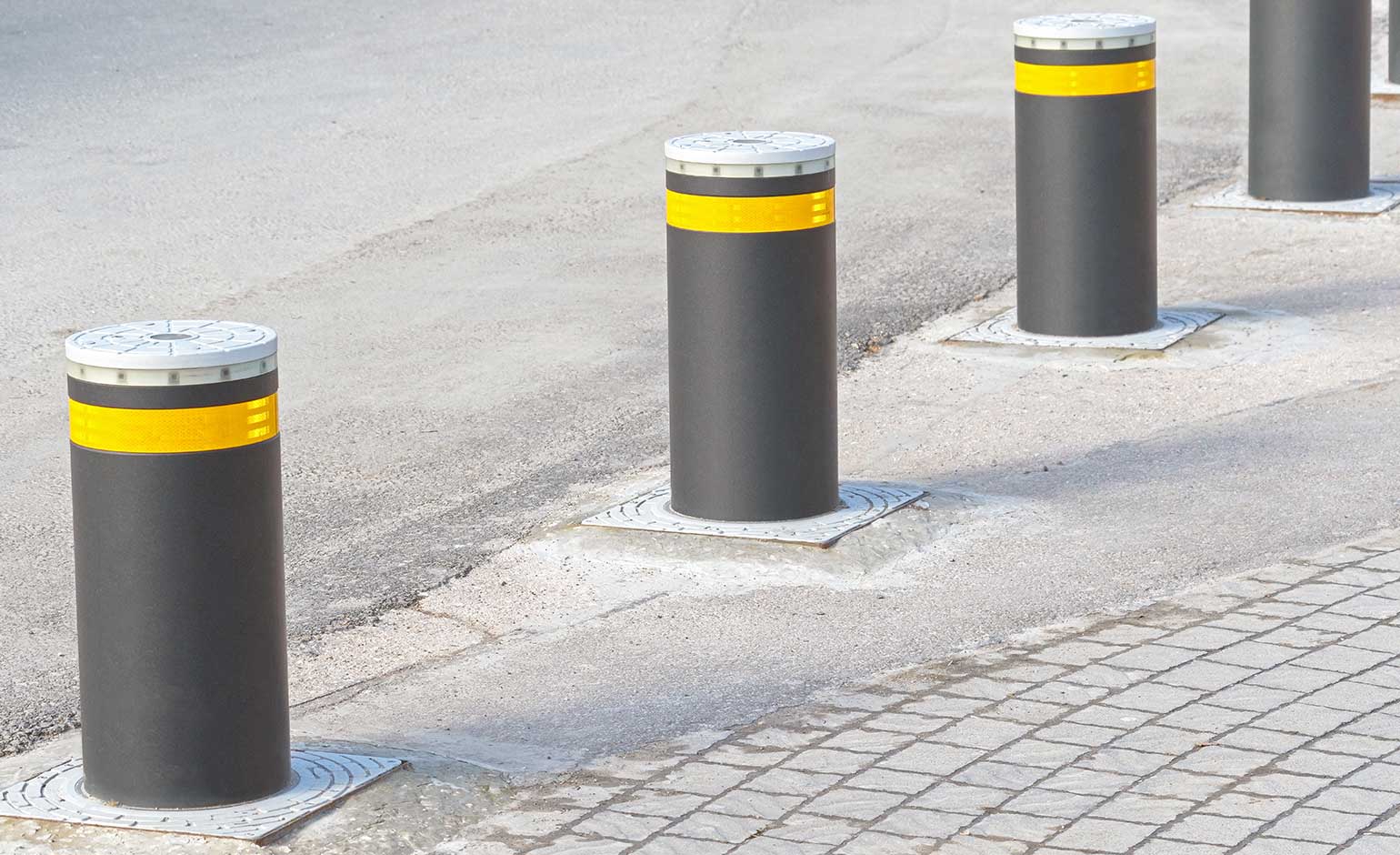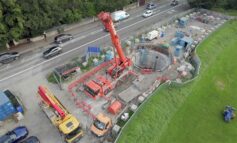Work to begin installing the latest controversial LTN traffic restriction in Bath will begin on Tuesday 2nd April, Bath & North East Somerset Council has said.

Bollards in a road | Library image
The new through-traffic restriction on Sydney Road will stop motorists from travelling from the A36 Warminster Road to Darlington Street via New Sydney Place.
They will instead have to follow the A36 around Beckford Road and along Sydney Place, passing the top of Great Pulteney Street.
The trial scheme on Sydney Road, at its junction with New Sydney Place, follows consultation and co-design workshops on the Liveable Neighbourhood programme, to develop a range of measures to improve residential streets.
Work on the scheme will start from Tuesday 2nd April and will take up to two weeks to complete.
Once work is complete, the through-traffic restriction will remain in place for a minimum of six months under an experimental traffic regulation order (ETRO).
During this time, the council has said it will monitor the impact of the trial on traffic and air quality and is inviting feedback in a public consultation.
Councillor David Wood, Deputy Council Leader and cabinet member for Council Priorities & Delivery, said: “Three through-traffic restriction trials are already in place as part of our Liveable Neighbourhood programme.
“They have shown us that the best method of introducing Liveable Neighbourhood proposals is via an ETRO because this gives us time to monitor the impacts of the scheme and for people to respond to the changes, before any permanent changes are adopted.
“People can complete a questionnaire at any point during the six-month trial.”
The scheme will comprise a row of bollards in Sydney Road at its junction with New Sydney Place and Sydney Mews, with vehicle access to properties from either side of the restriction.
Two central bollards can be removed for access by the emergency services. On-street parking in the area will be unaffected, but some temporary suspensions are required during construction works.
Alongside the bollard restriction, the council will also remove the dedicated left-turn filter lane on Warminster Road into Sydney Road, and narrow the North Road and Sydney Road junctions with Warminster Road to slow turning traffic and improve pedestrian safety.
Work will begin between 2nd – 10th April on the junctions with Warminster Road, involving the closing of the Sydney Road and North Road junctions during works.
Access to North Road and Sydney Road is from the south (via Bathwick Hill) during this time. Diversions will be signed on the street and footways remain open.
Once the Warminster Road work is complete and the junctions are re-opened, the bollards will be installed across Sydney Road at the junction with New Sydney Place and Sydney Mews from 10th – 12th April. Some temporary parking restrictions will apply during the works. Footways remain open.
Letters have been sent out to residents outlining how to have their say during the trial and the additional restrictions which will apply during construction.
Around 200 people attended a pre-consultation event on 20th March at the Guildhall, where residents were invited to find out more about the six-month trial, how the scheme will be monitored and evaluated and the construction works programme.
Concerns regarding traffic data collected during the ETRO trial period have already been raised internally at Bath & North East Somerset Council, after it was revealed that Highways England may close the A36 at Limpley Stoke for several months this summer for essential roadworks.
The drop in traffic along Beckford Road caused by the lack of vehicles travelling along the A36 due to the 24/7 closure was flagged back in January, and the local authority is not expected to count traffic data during dates when the route is closed.
To find out more about the public consultation and to complete a questionnaire from the beginning of April (once work is complete), visit www.bathnes.gov.uk/sydneyroadetro.
A similar scheme on Southlands in Weston village was recently made permanent, despite a majority of residents objecting to the scheme in council surveys.
A call-in on the decision to make the controversial restriction permanent was overturned by a scrutiny panel in February.



